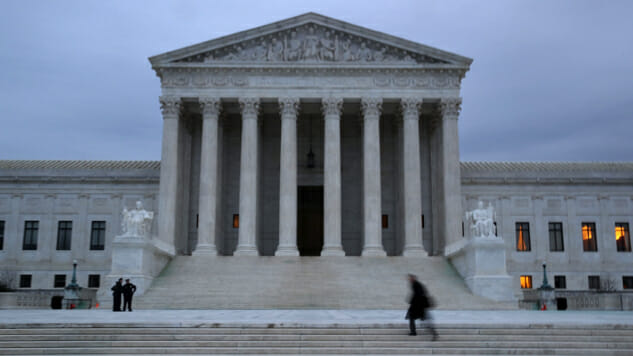Supreme Court Makes Constitutional History in Civil Forfeiture Laws Case
Photo by Mark Wilson/Getty
Every now and then, when the moon is in the seventh house and Jupiter aligns with Mars, we get to share some good political news with you. Now is thankfully one of those times.
On Wednesday (Feb. 20), the Supreme Court handed down a unanimous decision in the case of Timbs v. Indiana that finally imposes the Excessive Fines Clause on all 50 states, as Slate reports.
For those of you who aren’t constitutional nerds, the Excessive Fines Clause is part of the Eighth Amendment to the Bill of Rights, which states, “Excessive bail shall not be required, nor excessive fines imposed, nor cruel and unusual punishments inflicted.”
However, up until Timbs v. Indiana, the Excessive Fines Clause was not implemented in all 50 states, meaning that civil forfeiture laws incentivized government seizure of property—even property belonging to people completely innocent of any wrongdoing. It’s a twisted loophole in our justice system that allows law enforcement to take property (anything from vehicles to cash to homes) that is merely suspected to be tied to criminal activity. As the Institute for Justice outlines, the owner doesn’t even need to be charged or convicted of a crime for their property to be taken.
-

-

-

-

-

-

-

-

-

-

-

-

-

-

-

-

-

-

-

-

-

-

-

-

-

-

-

-

-

-

-

-

-

-

-

-

-

-

-

-








































